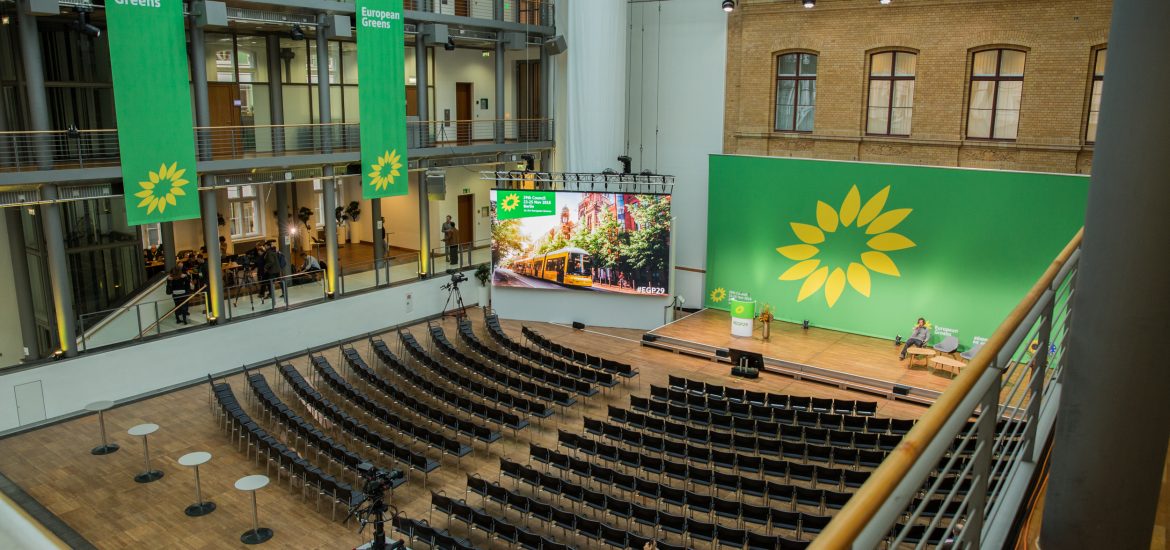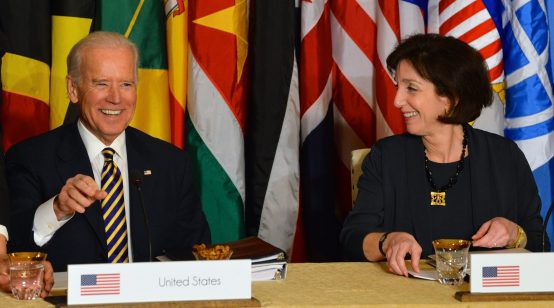
Citizens around the world are voting to change the way things are done. There are many causes of this upheaval – globalizing economics opportunities and identities, stretching gaps between rich and poor, and, particularly for the youth, climate change. The 2019 European Parliamentary Elections last weekend reaffirmed this upheaval. Galvanized by climate-concerned youth, Greens were the clear continent-wide winners, but populist right-wing parties also made inroads.
It is hard to be anything but unequivocal in stating that political elites have failed to address climate seriously. This inaction has allowed fossil fuels to cling to power much like senators of the late Roman Republic. It is becoming clearer every day, moreover, that elites cannot rebottle the problems they have fathered. In this vein, the elections should not be viewed through the traditional lens of left and right, but rather as a further polarization of the continent’s citizenry along specific, policy-related lines.
While I share concerns about right-wing populism ripping apart our multiethnic polities, this polarizing nurtures a decentralizing of energy, a necessary step of building a sustainable energy system. The victories of the Greens and right-wing parties alike are therefore both a symptom of, and propellant for, the energy transition.
Green wave
Europeans have long led on climate, but last weekend’s results raised the bar. With the Greens/European Free Alliance (EFA) winning 69 seats for a 9.2% share – a 40 percent increase from 2014 – the ground is fertile for a transformation of EU energy policy.
The victory of Germany’s Green Party in the 1990s on the back of its opposition to nuclear power drove the country to embrace renewables as an alternative. Now, these parties will push the EP in ways that make traditional blocs uncomfortable. Some posit that a four-way coalition that includes the Greens/EFA is the only way to form a stable coalition, in which case offering them the position of either Commissioner of Energy or Climate would be the sina non qua for their participation.
Practically, the elections will shape the formulation of new climate legislation. While the parliament does not craft the legislation itself – that is the EU Commission’s job – it will elect the new President of the EU Commission, approve the rest of the Commission’s members, and ultimately the body’s policy decisions. The EU Commission, meanwhile, remains committed to the energy transition, which allocated €750 million for clean energy infrastructure in March 2019. The Greens, moreover, tend to influence policy more due to their singular focus on climate, much easier to accomplish than the laundry lists that traditional parties must try to address.
This green wave was also notable within individuals countries. Green parties finished second in Finland, Germany, and Ireland and, perhaps most surprisingly, third in France. The most disappointing result was in Greta Thunberg’s home country of Sweden, where the party finished fourth.
Malleable right
Nevertheless, we should not greenwash the results. Right-wing parties obtained massive gains in certain key countries, most notably France, where the Greens’ third place finish was overshadowed by the victory of the far-right National Rally. These voters are still, for the most part, more concerned by their pocket books and immigration than climate. But at least there is broad consensus in Europe that climate change is real and must be addressed.
Yet it is a mixed bag, according to the European Renewable Energies Federation (EREF) EREF: “The larger European political groups have differing and heterogenic views when it comes to their attitude towards renewables…Some groups are comprised of national parties who are all in agreement in ranking renewables high in their priorities, some groups are comprised of national parties who both do and do not prioritise renewables, while other groups do not regard the development of renewables as a priority.”
This suggests room for malleability on climate, and we have already seen how climate becomes a national issue. As the effects of climate change worsen, more right-wing parties could even ally themselves with the Greens, again in opposition to the traditional parties. Many also take solace in the fact that when it comes to coalition building within parliament, these parties are more splintered and will have less influence or ability to hold key positions.
Decentralizing tendencies
We have long assumed that decentralizing the EU body politic undermines its raison d’etre as a peace project and a unified supranational body that can throw its weight around in global politics and economics.
Yet decentralizing has been underway for some time and naturally favors renewables. For two hundred years, our energy system has evolved from local generation to national and supranational power grids and global trading of fossil fuels; the system is now flowing back towards local generation, micro-grids, and custom solutions. In this sense, the energy transition undermines large political entities, nations and unions alike.
Take Germany again. Most traditional German parties sees Nord Stream II as a business venture that will create more gas-supply security for it and the continent, ignoring the political costs. Others will undoubtedly imitate this brand of German “leadership” and seek national solutions. An interesting example of this came last week, when Spain’s Energy Minister and Budget Minister last week called for a carbon tax on energy imports into Europe. The ministers proposed it out of concern for Spain’s electricity imports from Morocco. Its policy implications are, of course, continental and a potential boon to the energy transition.
Crossing the Rubicon
It is clear that the continent has already crossed its Rubicon with Brexit and the rise of right-wing populists tapping into frustration with Brussels’ bureaucracy. A pre-election poll found that the majority of EU citizens believe the bloc will dissolve within 20 years. Europe may disagree on climate and immigration, but there is no going back to the status quo ante.
Fossil fuels enabled the West to rise to a position of global dominance. Tearing this down requires real and urgent demands from people imagining a new future. The EU parliamentary elections may not prove watershed moment for energy per se. Energy transitions are slow simmering developments. But their polarizing nature makes them ipso facto a win for the energy transition.





